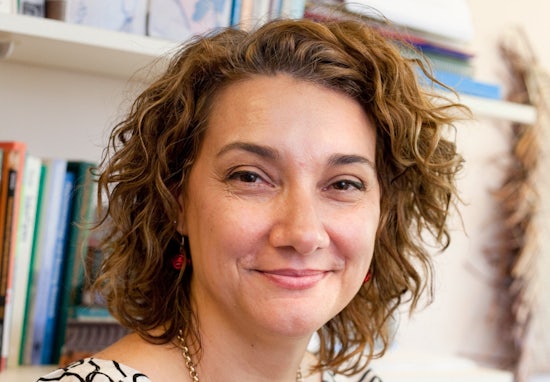Improving aged care for residents and students
A new program is allowing student nurses to focus on “fewer residents” but in “much more depth” while addressing negative perceptions about working with older people and, in particular, working in residential aged care.

Program leader, Dr Lorraine Venturato.
Following a $520,000 federal government award last year, Queensland’s Griffith Centre for Health Practice Innovation and School of Nursing and Midwifery has been working alongside key providers, including aged care provider and partner RSL Care.
The Training and Research Aged Care Services (TRACS) grant has enabled Griffith University to create a more holistic model of aged care teaching for degree level nursing students and has seen it become a ‘research consultant’ for the sector.
A key part of the project has seen the School work with RSL Care to facilitate effective clinical practice placements for its first year Bachelor of Nursing students.
“We developed a model for clinical placements in aged care facilities that supports a much more ‘person centred’ focus than was previously seen,” says program leader, Dr Lorraine Venturato.
“Working collaboratively with staff from RSL Care Carrington Retirement Community and RSL Care Cazna Gardens Retirement Community, we developed a Positive Placement Program that supports students to focus on fewer residents but in much more depth. This group would typically encompass a high care resident, a low care resident and a resident with dementia,” she explains.
Students were encouraged to get to know this small group in depth, by assisting them with the usual nursing skills like hygiene, medication, assessment, mobility, and basic wound care, as well as thinking more broadly about the residents.
They were also encouraged to think about the residents’ care plans, personal goals, family conferencing and engaging with other members of the health care team.
“One of the benefits of having a deeper focus was that we were able to assign a larger number of students to placements than would have been previously possible. We were also able to provide them with a more positive introduction to the sector,” Dr Venturato says.
Luke Greive, RSL Care acting chief executive, claims the model is a “positive way” to engage the nursing workforce early in their careers.
“By challenging the negative perceptions people have about the aged care industry and guiding our future workforce to gain first hand experience, we can attract more people into this highly rewarding field,” Mr Greive says.
Four groups of 15 students have so far each completed two cycles of clinical practice at the care homes, with staff also being trained as mentors for the students.
“RSL Care has told us their staff felt far more engaged in students’ learning needs, and that the skills they have learnt have proved beneficial in recruiting and orientating new staff members,” Dr Venturato says of the findings.
“Previously students on placements told us that they felt they could be a burden on care home staff, but this new model has seen them working with residents more and only coming together with staff as they interact with the resident, rather than just shadowing a staff member all day.”
Following the initial trials, Dr Venturato says a new understanding is now evident, with staff and students working together to contribute to improved quality of care and learning.
“The care homes are now asking how we can create the same practices with other discipline programs at Griffith such as pharmacy, physiotherapy, social work and medicine,” she says.
The program is set to be implemented more widely across the School in Semester 2, 2014.






















